Life
Sign up for our newsletter
We summarize the week's scientific breakthroughs every Thursday.
-
 Life
LifeTo get a deeper tan, don’t sunbathe every day
Skin cells make protective melanin on a 48-hour cycle.
-
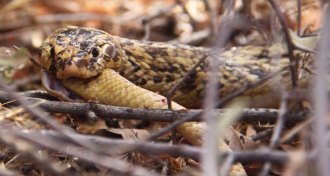 Animals
AnimalsHow a snake named Hannibal led to a discovery about cobra cannibalism
Scientists discovered that cobras in southern Africa eat each other more often than thought. And that may be true for cobras in other places as well.
-
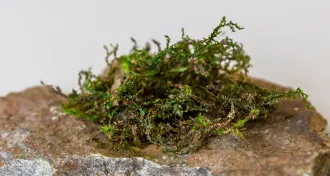 Plants
PlantsLiverwort plants contain a painkiller similar to the one in marijuana
Cannabinoids found in liverwort plants could spell relief for those suffering from chronic pain.
-
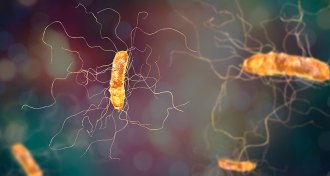 Life
LifeWhy some people may be more susceptible to deadly C. difficile infections
Proline, a type of amino acid, increases when gut microbe mixes are disturbed, giving this pathogen a ready food source.
-
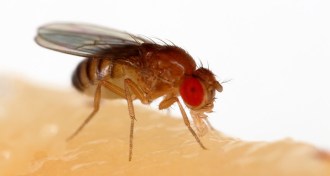 Neuroscience
NeuroscienceMessing with fruit flies’ gut bacteria turns them into speed walkers
Without the right gut microbes, fruit flies walk faster and take shorter rests, results that highlight a new connection between the gut and brain.
-
 Agriculture
AgriculturePlants engineered to always be on alert don’t grow well
Scientists bred a type of weed to lack proteins that help stem the production of bitter chemicals used to ward off insect attacks.
-
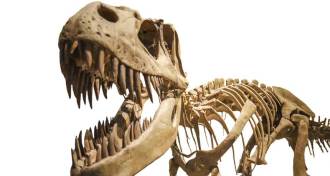 Paleontology
PaleontologyT. rex pulverized bones with an incredible amount of force
Tyrannosaurus rex’s powerful bite and remarkably strong teeth helped the dinosaur crush bones.
-
 Life
LifeHow to make organ transplants last
New strategies aim to help transplant recipients keep their organs healthy with fewer (or no) immune suppressing drugs.
-
 Genetics
GeneticsDNA differences are linked to having same-sex sexual partners
Genetic differences are associated with choosing same-sex partners in both men and women.
-
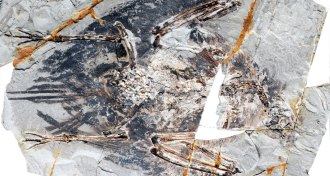 Paleontology
PaleontologyIn a first, scientists spot what may be lungs in an ancient bird fossil
Possible traces of lungs preserved with a 120-million-year-old bird fossil could represent a respiratory system similar to that of modern birds.
-
 Health & Medicine
Health & Medicine50 years ago, the safety of artificial sweeteners was fiercely debated
Scientists are still learning more about the health effects of chemical sweeteners
-
 Life
LifeDandelion seeds create a bizarre whirlpool in the air to fly
Researchers have deciphered the physics underlying dandelion flight.